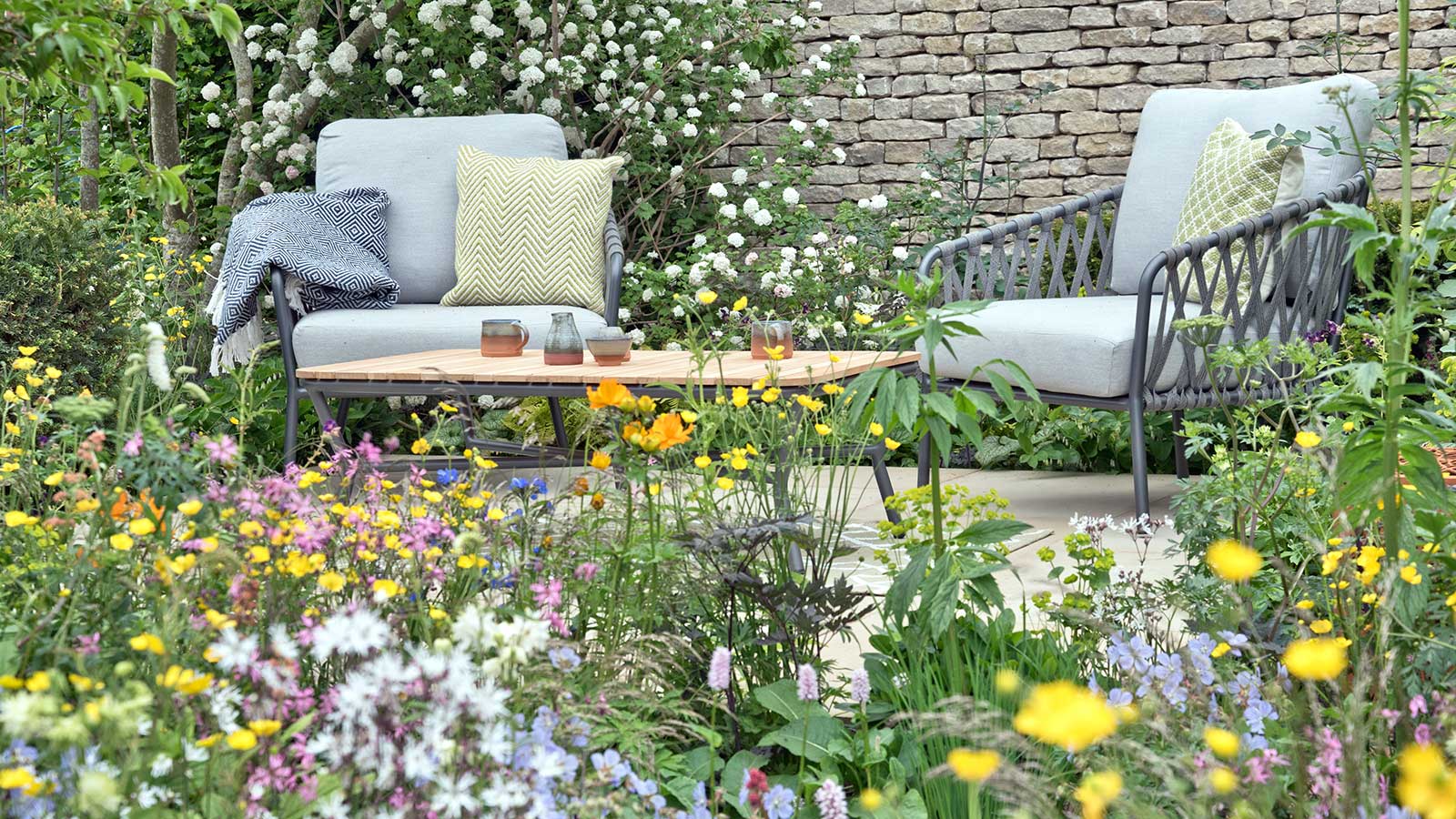
If you need to disguise a wall, fence or building, or create a distraction from an unsightly view, fast-growing climbing plants are an effective solution.
From classic cottage garden sweet peas to more tropical passion flowers, there are many colorful climbers to choose from. Whatever your preference in terms of coverage and color, you are bound to find a fast-growing vine that suits your tastes.
In my experience, choosing one or more of the best fast-growing plants will fill your yard with joyful color, and quickly. And sometimes, we might not want to wait for years to enjoy the fruits of our labor. Here are 15 of my favorites, including evergreen stalwarts, tropical blooms and floral showstoppers.
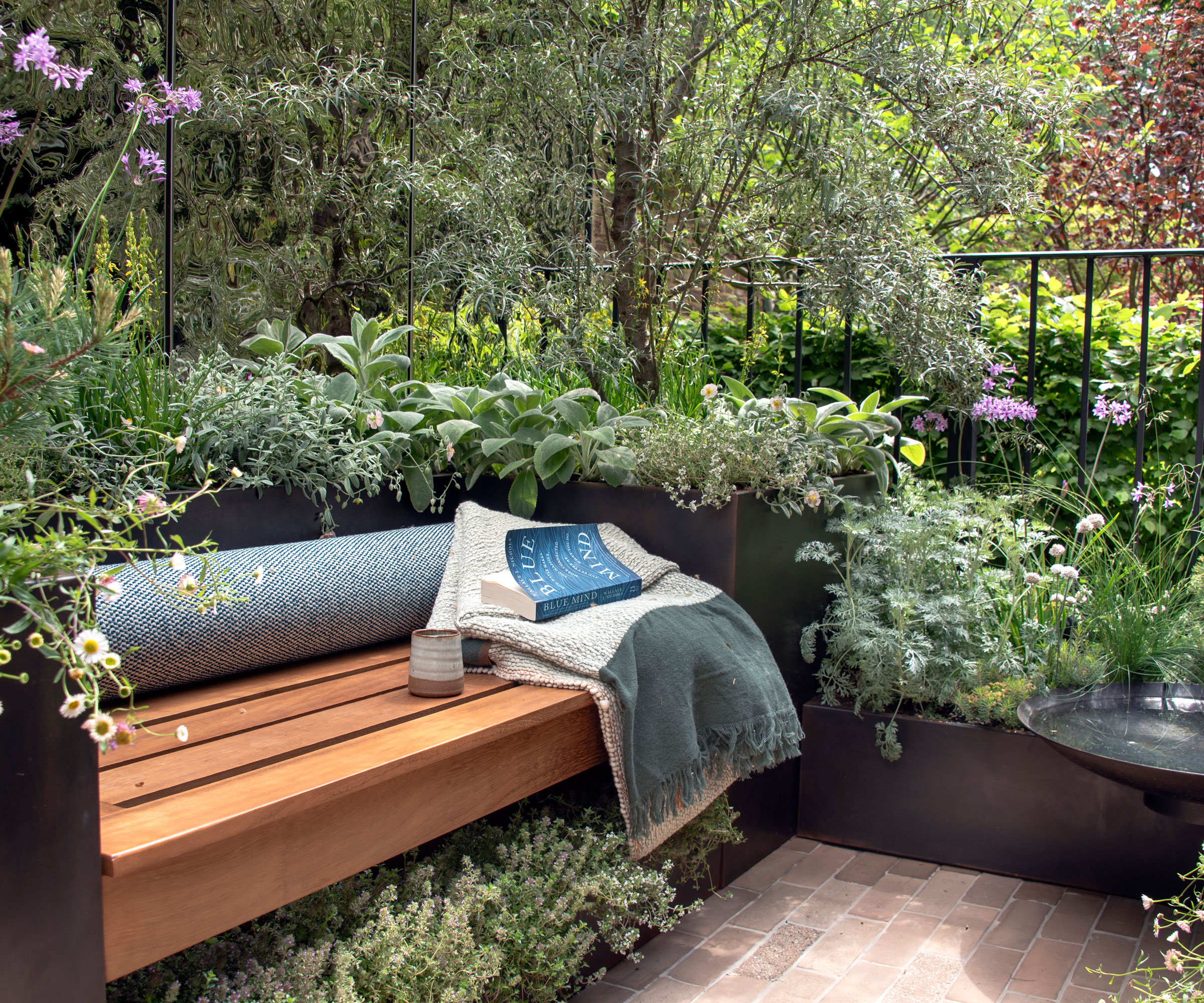
15 of the best fast-growing climbing plants
Many fast-growing climbers will give you good coverage in record time. So, if you are seeking effective garden screening ideas but don't want to wait, this guide is for you.
1. Akebia quinata
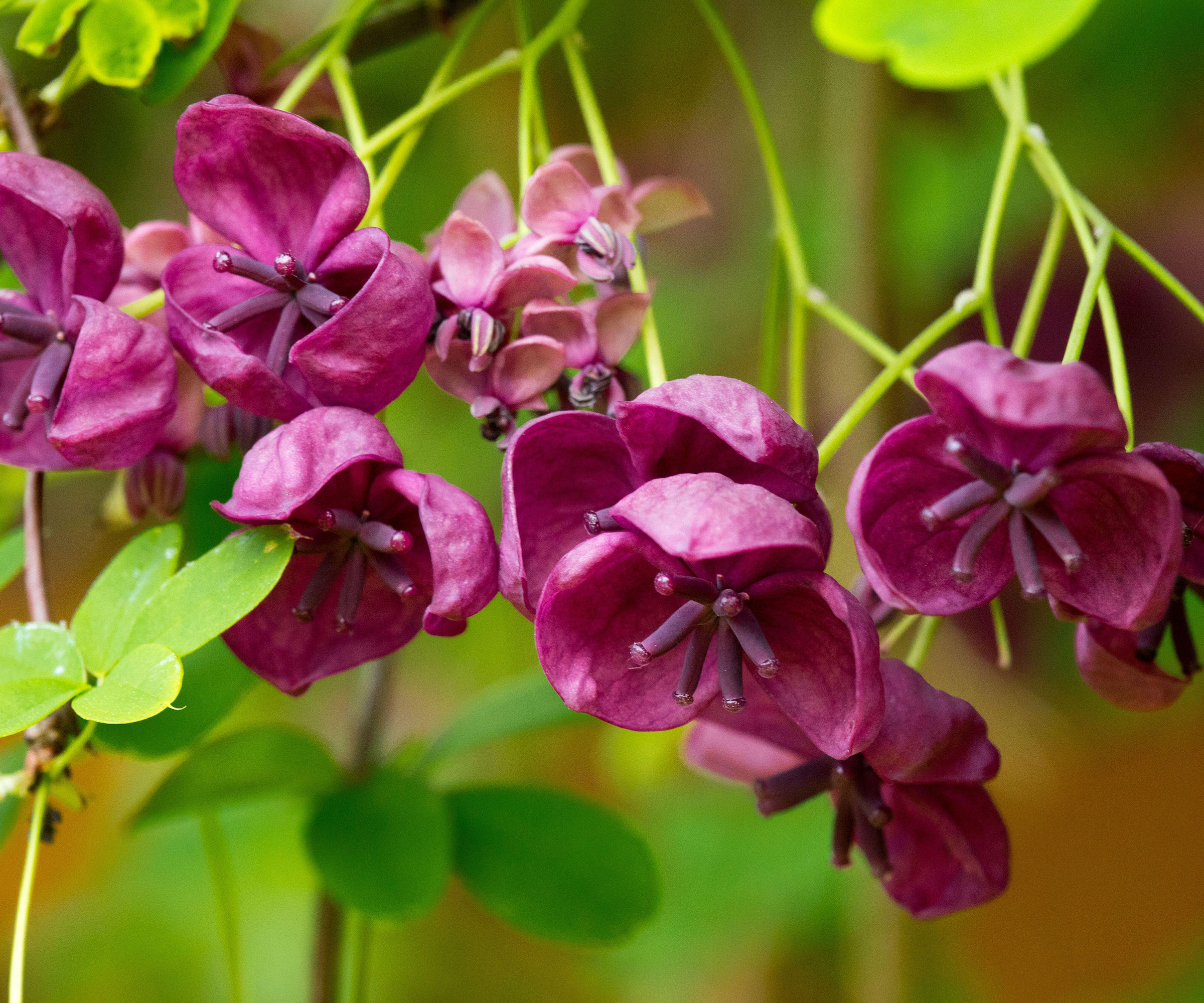
- Best for: Trellis, pergolas and fences, semi-evergreen foliage
- Height: 30ft
- Spread: 6-10ft
- Hardiness: USDA 5-9
A semi-evergreen, woody-stemmed climbing plant that thrives on neglect, the chocolate vine is undeniably vigorous.
However, a word of warning, it does require managing in smaller backyards, as it is considered an invasive climber in some US states.
It looks good planted near seating areas or gateways, where you will notice the small spring flowers and catch the subtle fragrance.
These are a deep maroon colour – or choose a creamy white variation, such as ‘White Chocolate’.
Live chocolate vine starter plants can be ordered from Amazon.
2. Cobaea scandens
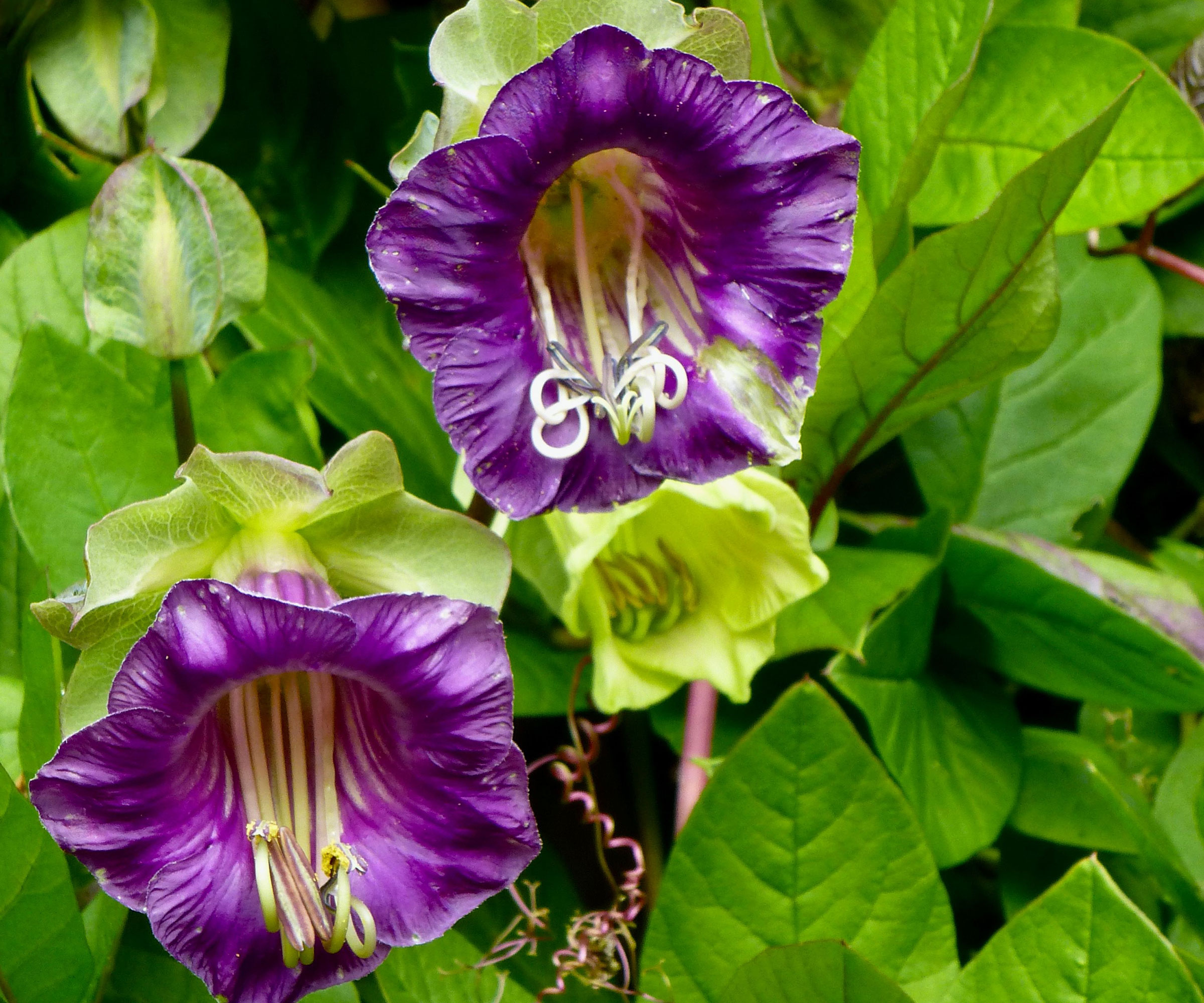
- Best for: Trellis, arbors, pollinators
- Height: 10-20ft
- Spread: 1-2ft
- Hardiness: USDA 9-10
This is a wonderful annual or tender perennial that’s easy to grow from seed and it will soon be clambering up through supports or growing through other plants with its self-twining tendrils.
Grow from seed and plant in fertile soil and full sun, in containers or borders.
Within 16 weeks, the first of the huge bell-shaped flowers will appear. These will keep coming until the first frosts and maybe later still in sheltered urban gardens.
Fascinatingly beautiful from bud to seed, you can grow the purple species or the ‘Alba’ variation.
Cobaea seeds can be ordered via Amazon.
3. Passion flower
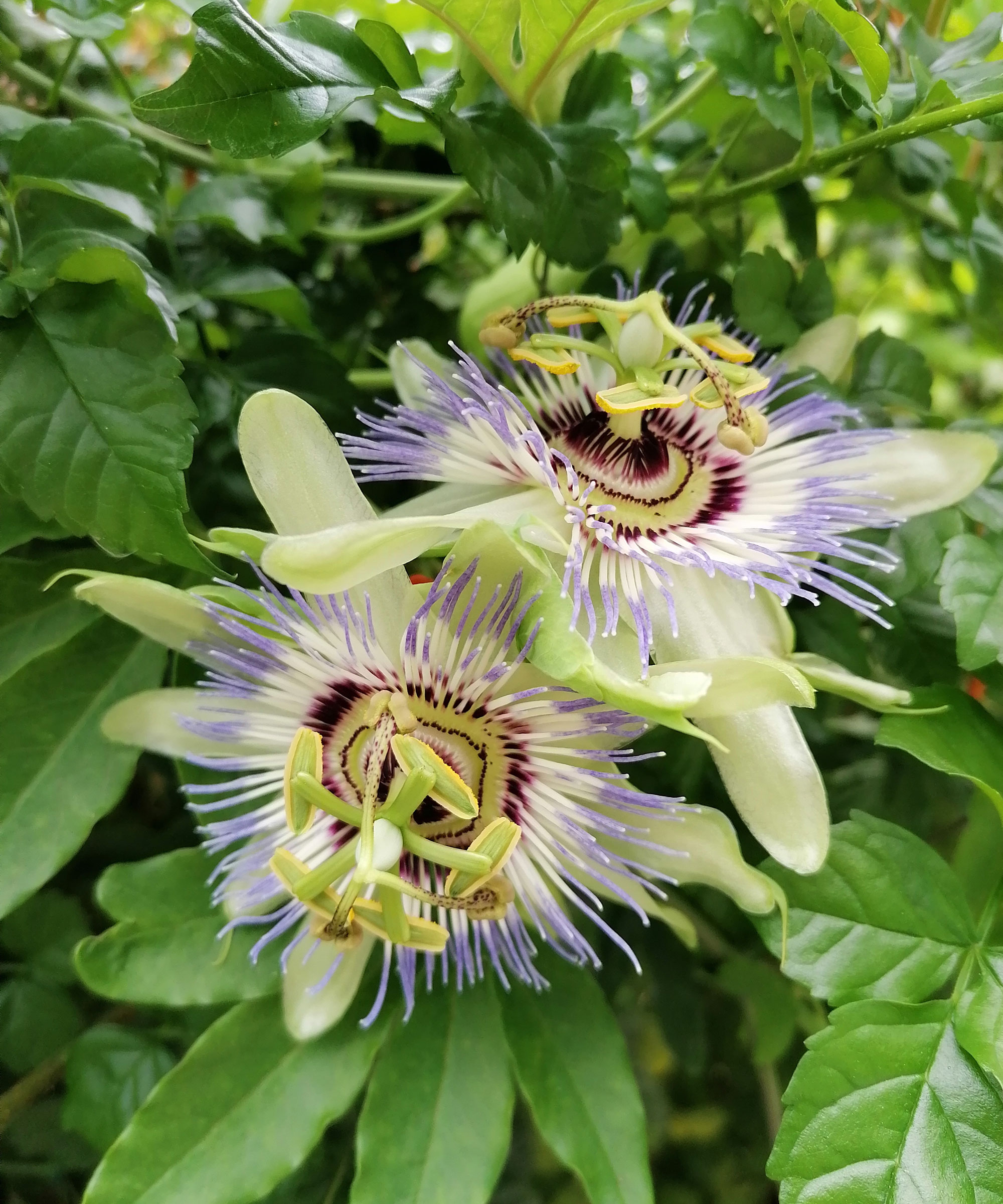
- Best for: Productive screens, pollinators, fences, arbors, trellis
- Height: 20-30ft
- Spread: 20-30ft
- Hardiness: USDA 9-11
With great foliage, stunning, fragrant flowers, and, in the right climate, delicious fruit, Passiflora is a fantastic, fast-growing flowering vine.
With a sprawling habit, they need room to spread and good support. These are tropical plant natives, so semi-evergreen, but vulnerable in exposed gardens over winter.
There are many gorgeous cultivars to choose from. Nature Hills recommends ‘Possum Purple’, which produces stunning edible fruits. To encourage fruiting, the experts advise that hand pollination might be necessary.
4. Honeysuckle
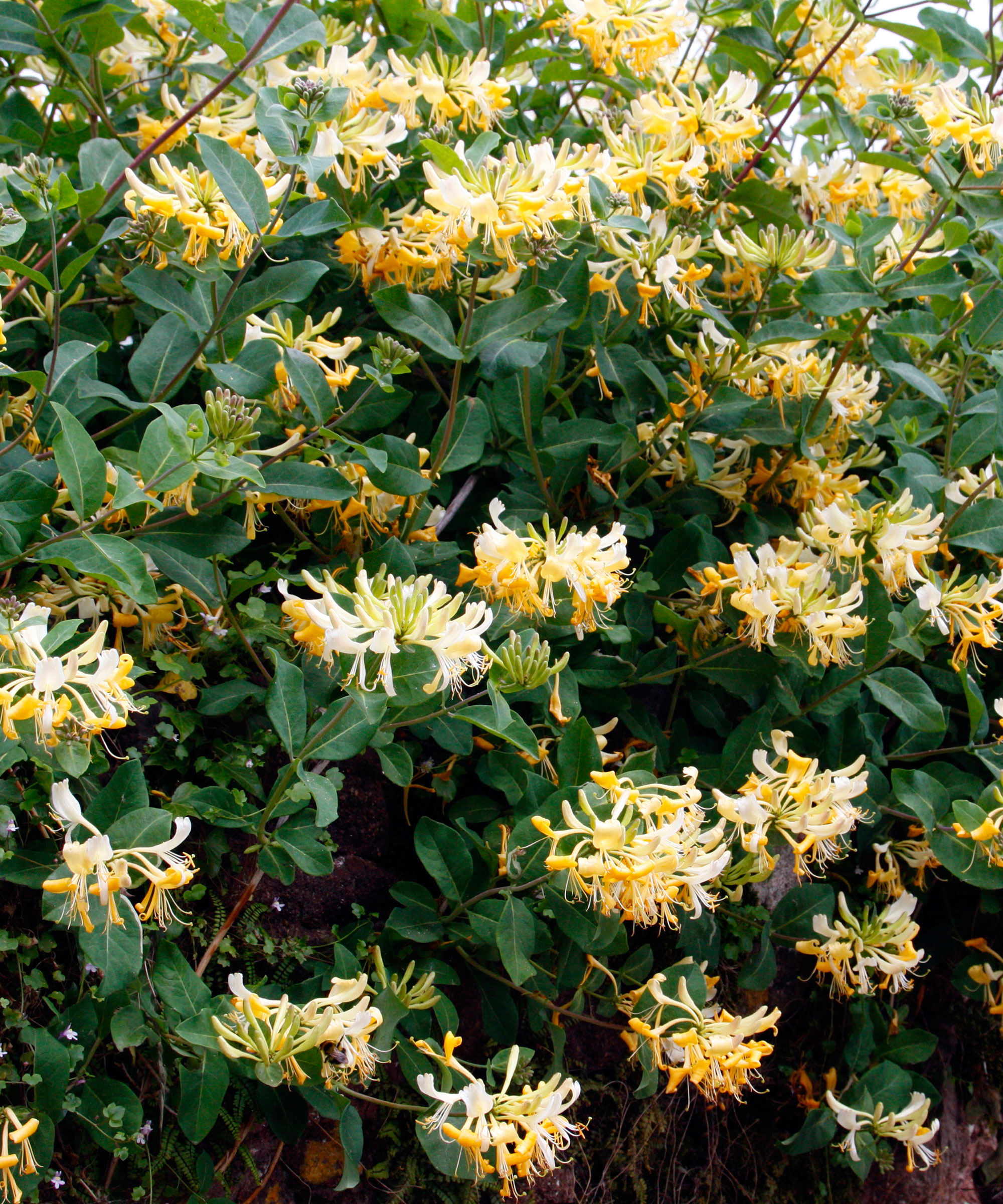
- Best for: Hummingbirds, tumbling over walls
- Height: 10ft
- Spread: 5ft
- Hardiness: USDA 4-8
Climbing honeysuckles are valued for their sweet-smelling summer blooms, plus they are a wonderful flower for attracting hummingbirds.
The native North American species is the coral honeysuckle, or Lonicera sempervirens, which is a remarkably tough plant, suited to sun and part shade and doesn’t suffer from pests and diseases.
'Coral honeysuckle is one of the best flowering climbers,' says Tatiana Anderson, plant expert and co-founder of Top Tropicals, based in Florida.
'For the best results, plant it from zone 4 plus in sunny or part-shade spots.'
Coral honeysuckle live plants are available at Amazon.
No pruning is necessary, other than to modify the natural sprawling habit – sturdy support from a wall or fence is required. Flowers appear on new and old growth.
5. Sweet peas
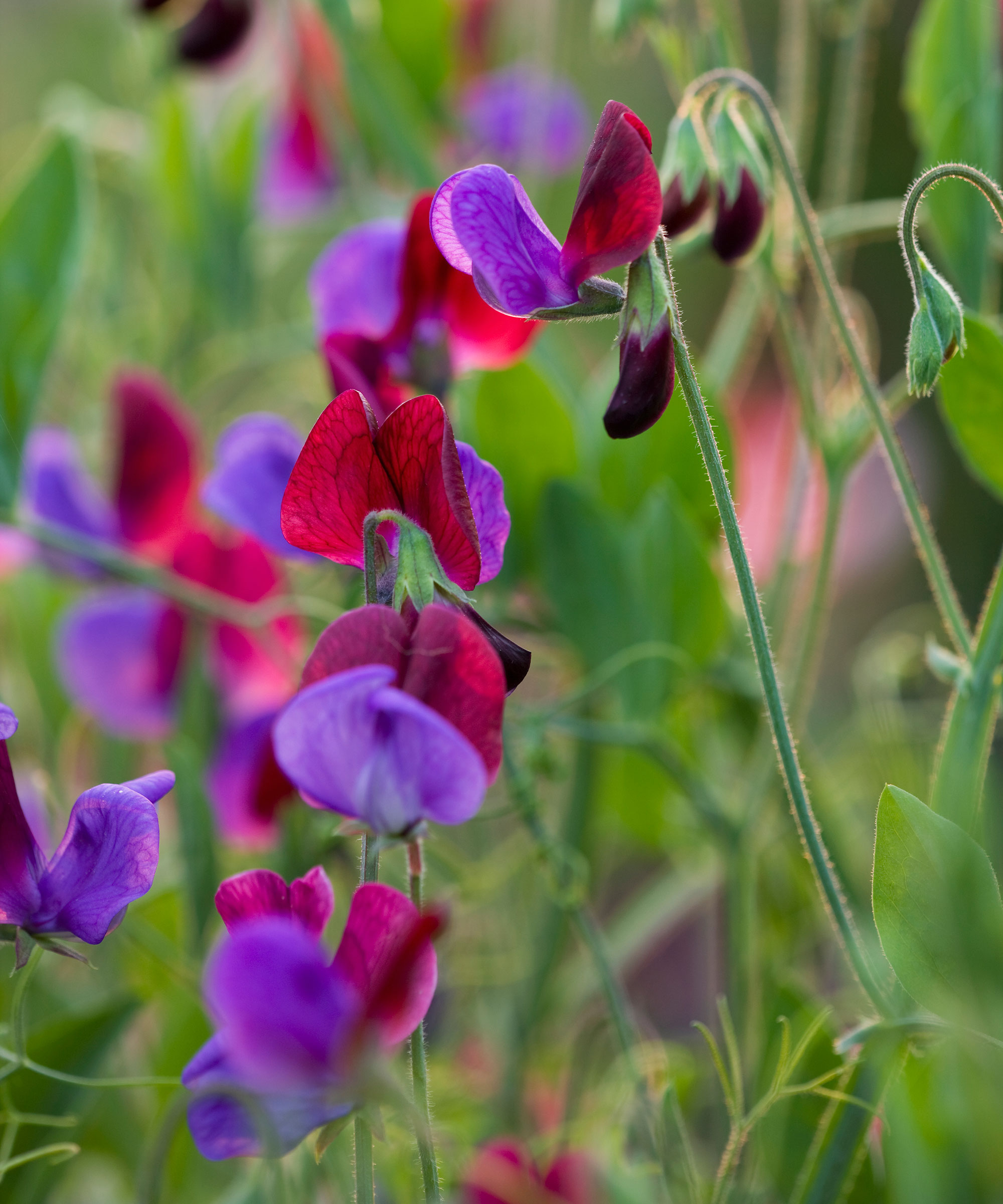
- Best for: Scent, containers and borders
- Height: 6ft
- Spread: 2ft
- Hardiness: USDA 2-11
One of the classic fast-growing climbing plants for summer, Lathyrus odoratus is a fabulous scented annual flower, plus it makes a wonderful homegrown cut flower.
Available in myriad pastel shades or stronger reds and purples, it’s easy to grow from seed. Sweet pea seeds are available at Walmart.
For best results when growing sweet peas, plant them in fall and overwinter under cover, or you can direct sow in spring.
Grow in full sun and fertile soil, with a wooden wigwam or metal pyramid support in a large container or in a border, to add structure, height and color.
6. Potato vine
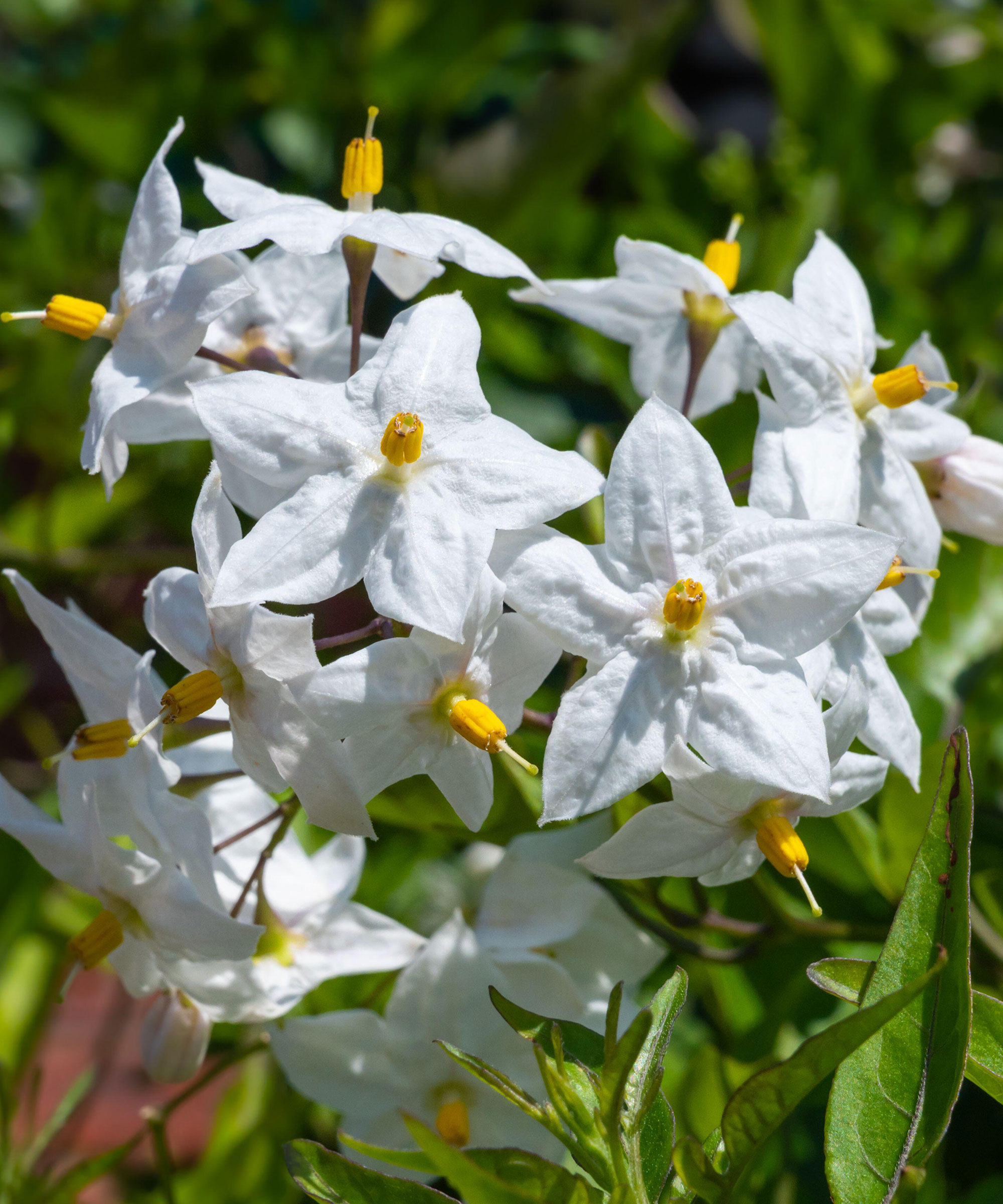
- Best for: Pergolas and porches
- Height: 25ft
- Spread: 15ft
- Hardiness: USDA 9-11
Not an edible root in sight, the potato vine is all about leafy coverage with pretty white or purple flowers.
Good for sun and part shade, they will quickly adorn pergolas and porches, adding shade and ornament.
Easy to look after, they tolerate dry conditions once established, and in warmer areas, they can be more of an evergreen climber as they will hold onto their leaves through the cooler months.
With a long flowering season through the summer, they are hardworking plants. Choose Solanum jasminoides for white flowers (available at Nature Hills) or S. crispum ‘Glasnevin’ for bright purple flowers with yellow centers.
7. Trumpet creeper
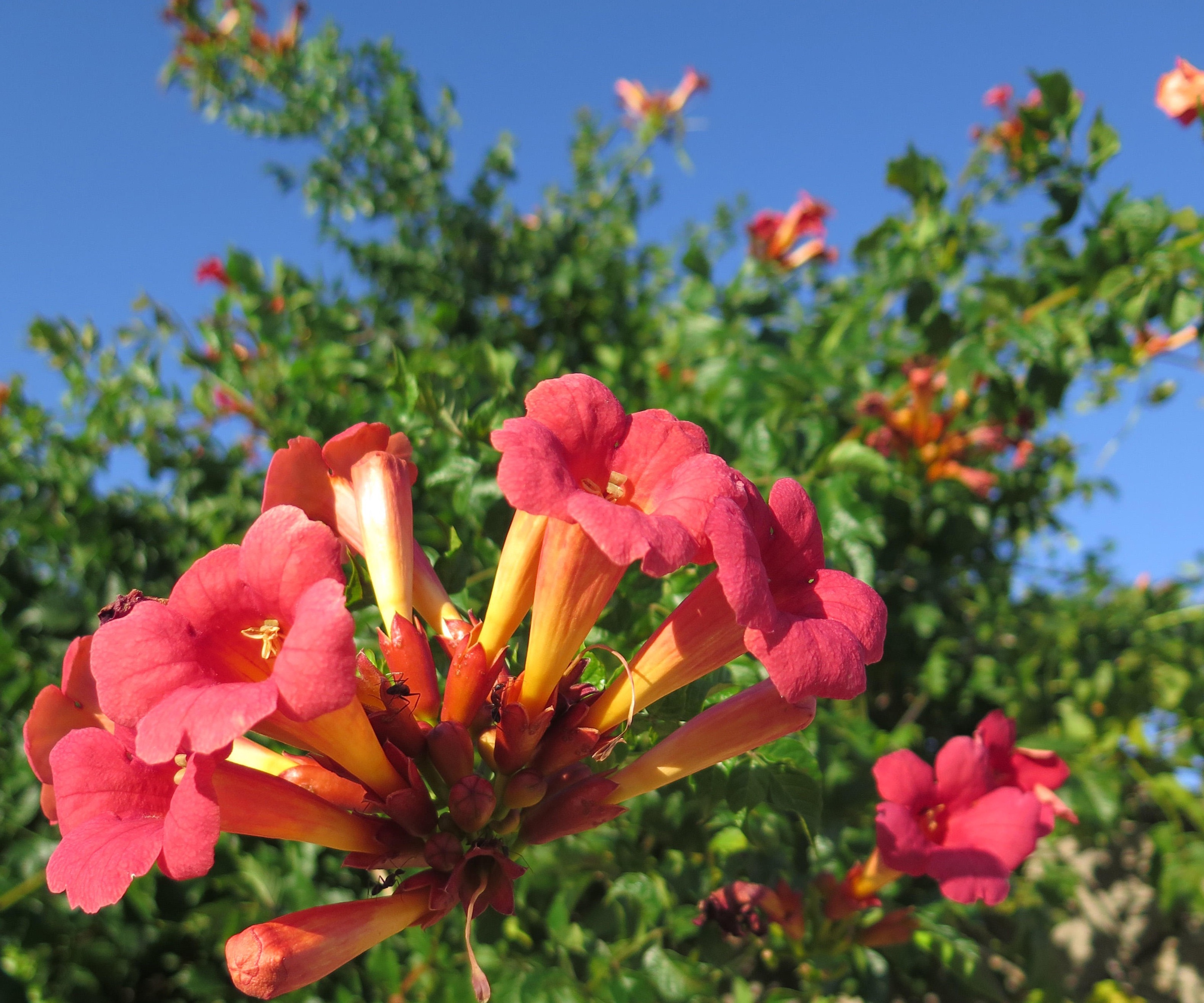
- Best for: Covering garden buildings
- Height: 40ft
- Spread: 20ft
- Hardiness: USDA 4-9
If you want to attract hummingbirds to your yard, this is the fast-growing climbing plant for you, as the birds find the flowers irresistible.
It's easy to see why, too, as the brilliant red trumpet-like tropical flowers that give this climber its name are simply stunning.
In terms of how to grow trumpet vine, this North American native is a vigorous, fast grower that prefers full sun but is tolerant of some shade and is very easy to care for.
Live trumpet creeper plants are available at Walmart.
8. Spanish flag
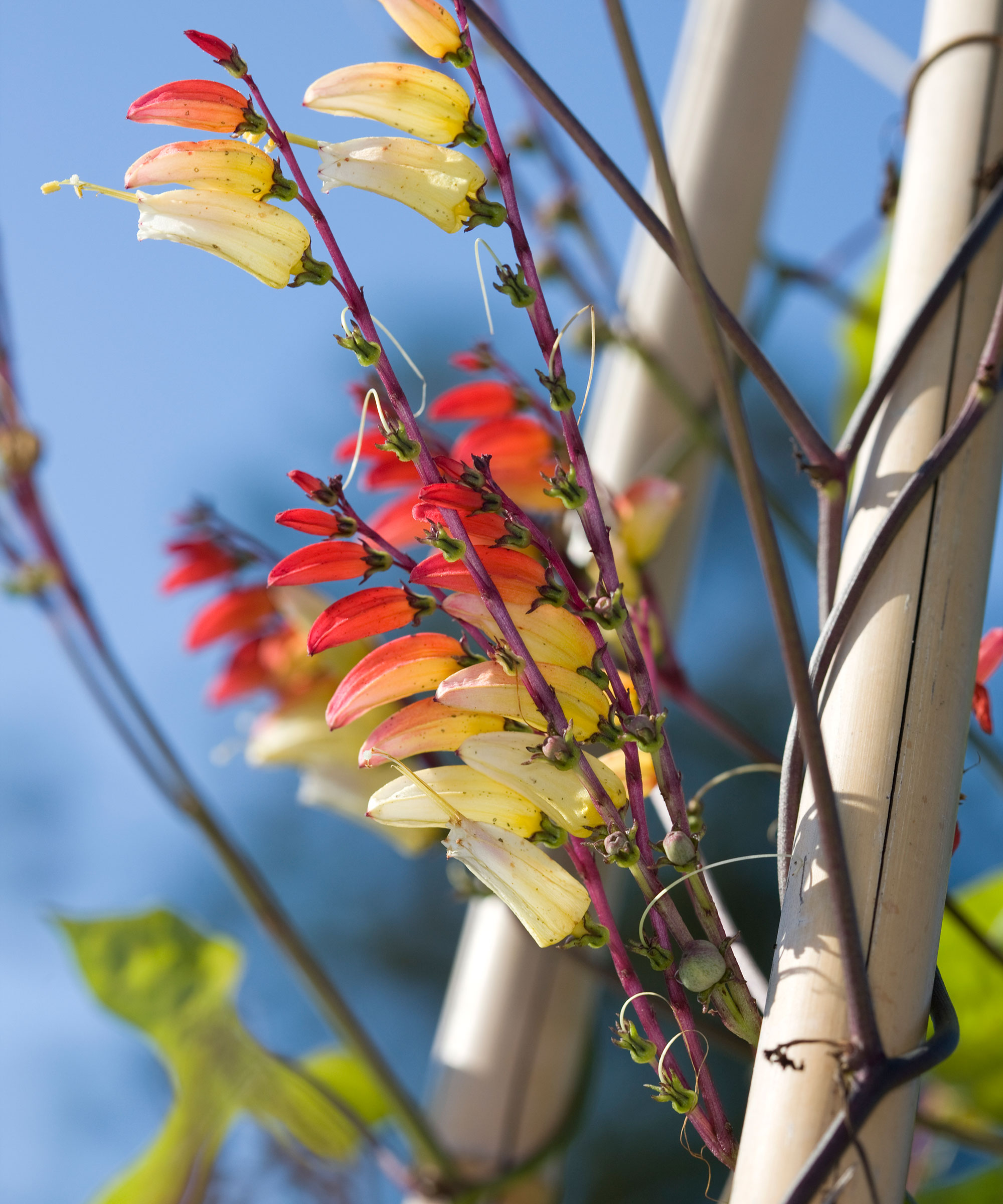
- Best for: Containers
- Height: 15ft
- Spread: 12ft
- Hardiness: USDA 9-11
This is a Mexican annual native and a member of the morning glory family that includes both the invasive Ipomoea purpurea and sweet potatoes.
The Spanish flag, or Ipomoea lobata, is one of the more unusual and brightly colored species.
The two-tone yellow and red flowers produced from midsummer until the first frosts live up to their name as the firecracker vine.
Sow seeds in spring and plant into a container garden with a wigwam or metal trellis for support. Great for adding height to hot-colored borders. It will die back over winter.
Spanish flag plant seeds can be ordered via Amazon.
9. Crimson glory vine
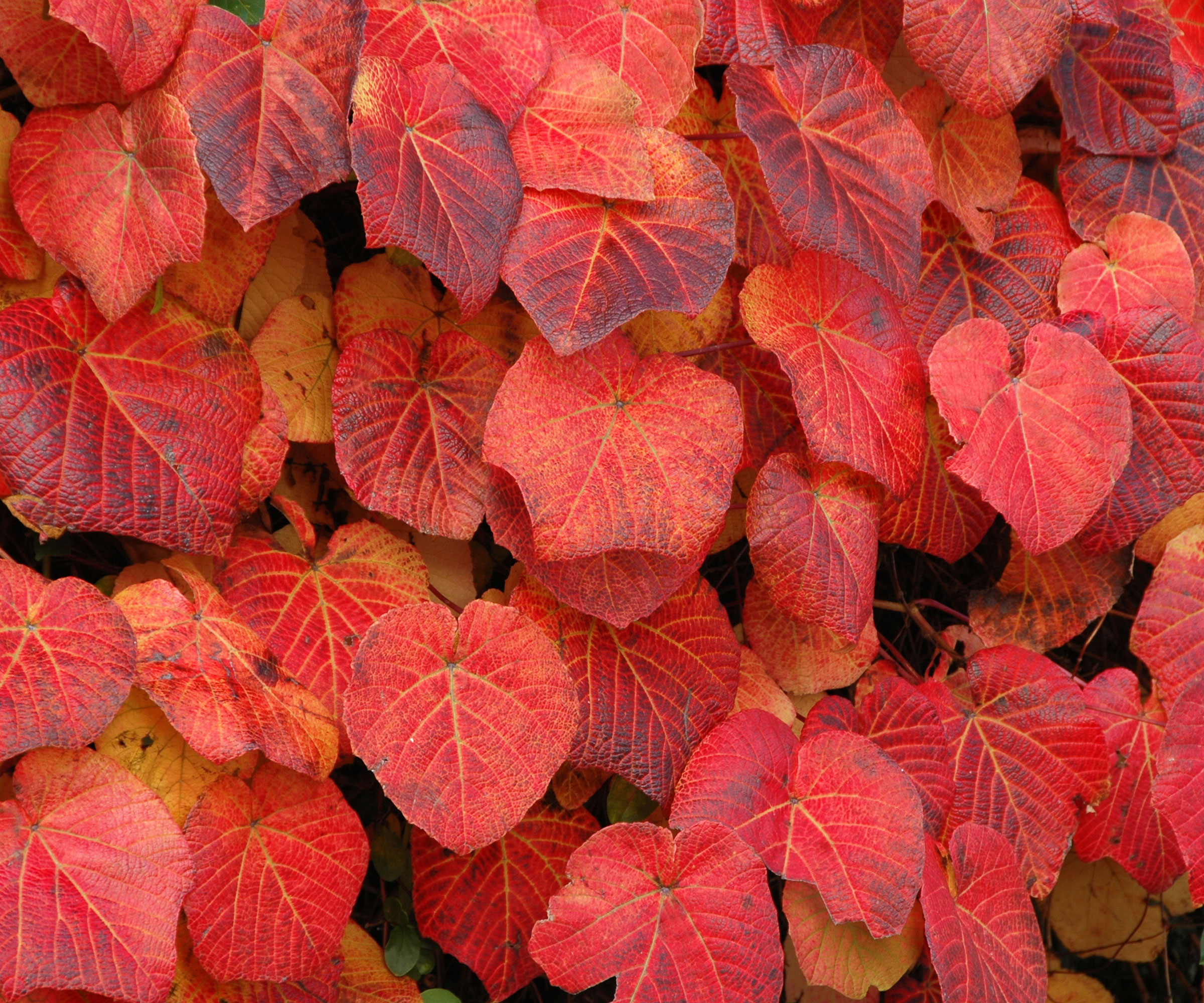
- Best for: Fall foliage color
- Height: 50ft
- Spread: 20ft
- Hardiness: USDA 6-9
The crimson glory vine, or Vitis cognetiae, is a fantastic, fast-growing climbing plant that gives rich textured coverage to walls and garden fences.
The leathery foliage turns a brilliant, rich, red-maroon in fall, which will help to extend interest and impact in the yard through to December.
It’s very vigorous and will put on a lot of growth over the summer, before producing small, inedible grapes. Grow in full sun or part shade in fertile soil types.
Crimson glory vine seeds can be bought from Amazon.
10. Kiwi vine
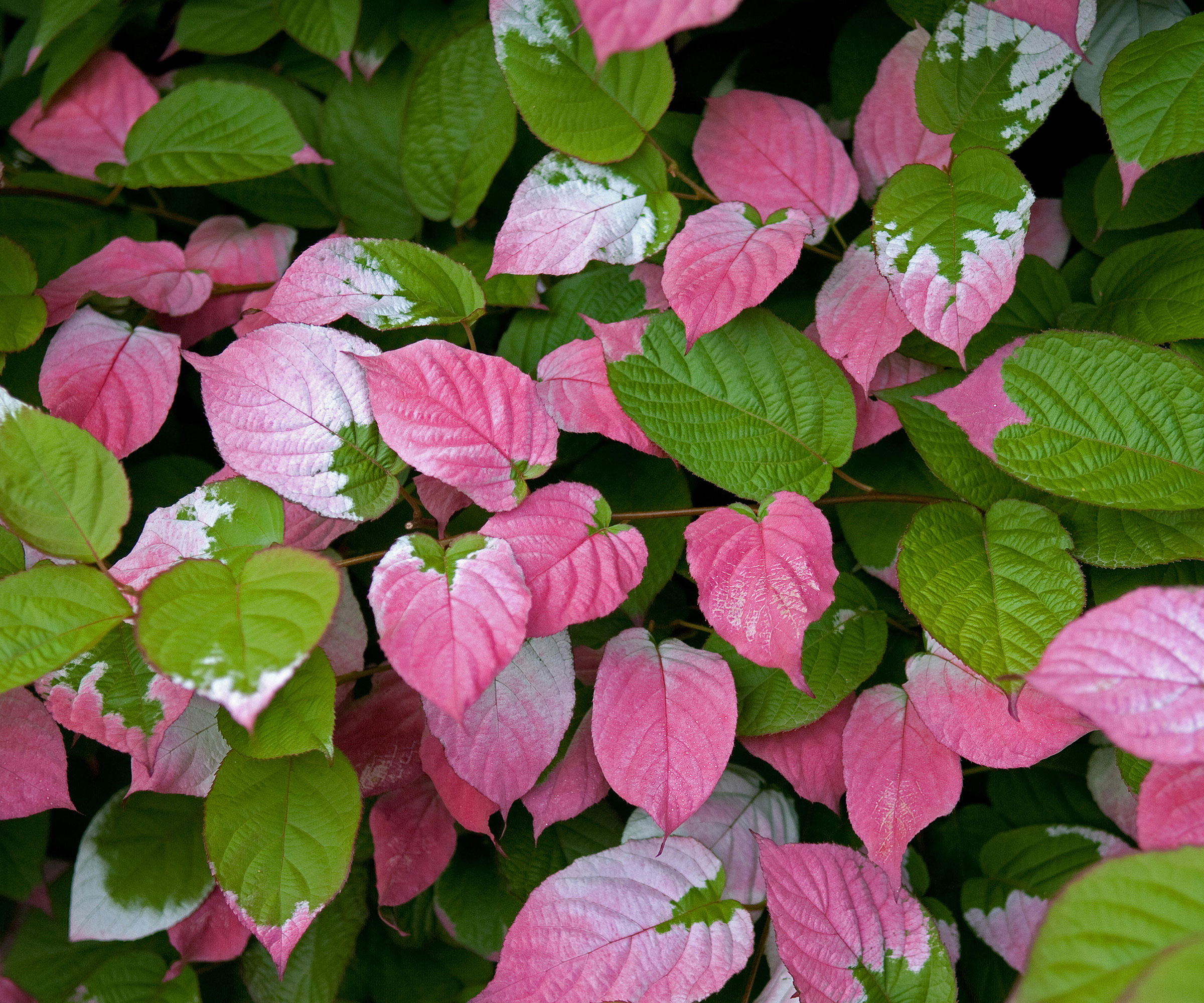
- Best for: Productive gardens
- Height: 12ft
- Spread: 5ft
- Hardiness: USDA 3-8
For a beautiful, leafy fruiting vine, look no further than the Kiwi.
Good for plots of all sizes, it will suit a pergola, trellis or fence, as long as it is a sunny, sheltered spot.
The self-fertile species recommended by Nature Hills, Actinidia arguta 'Issai', will reward you with a froth of pollinator-friendly, fragrant spring flowers followed by plenty of produce.
This is a fast, easy-to-grow climber that will suit a range of soil types and needs minimal pruning over winter to maintain size and shape.
For a more highly ornamental foliage effect, try the non-fruiting Actinidia kolomikta, also from Nature Hills, with pink and white variegated foliage.
11. Evergreen clematis
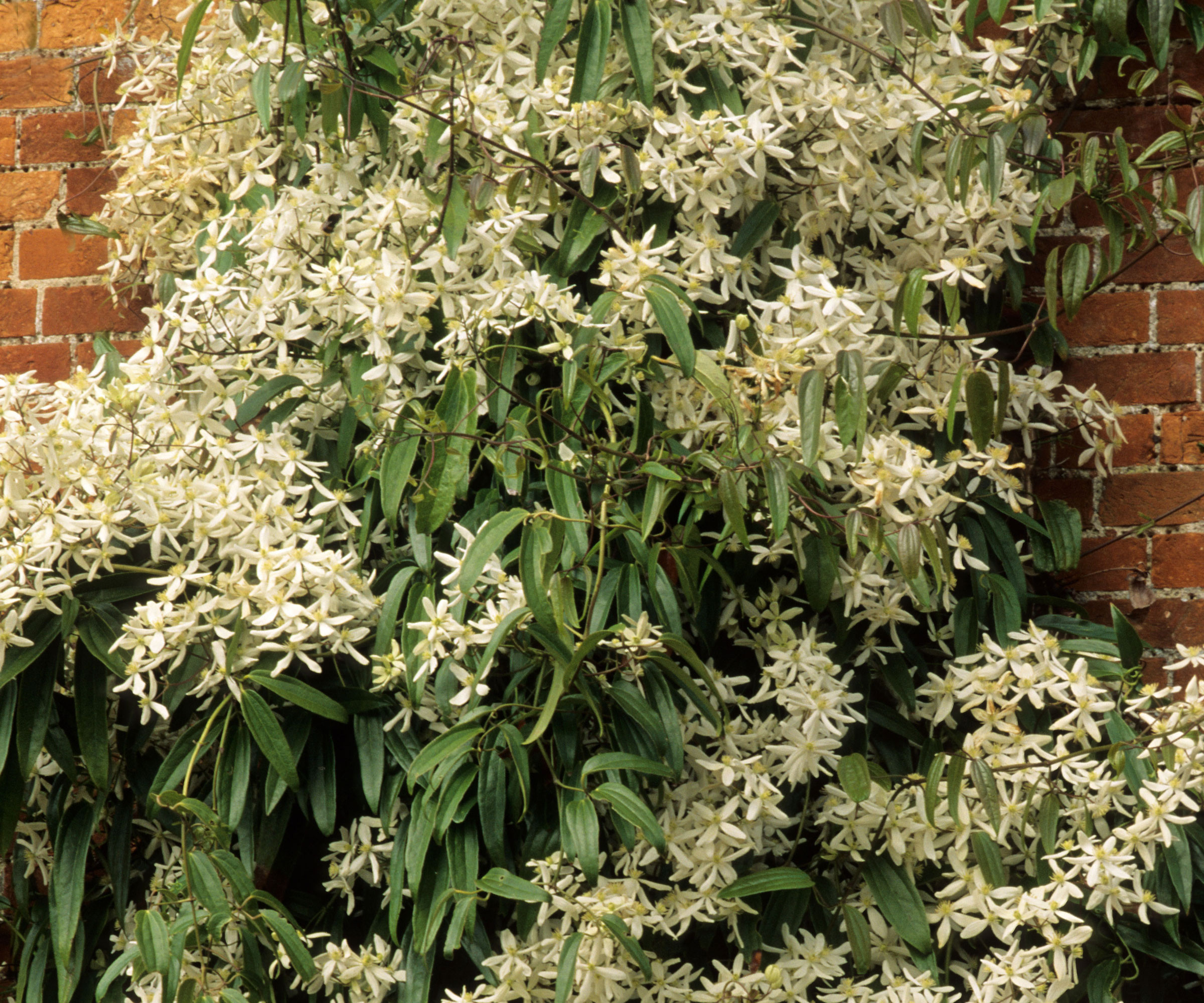
- Best for: Year-round greenery
- Height: 8ft
- Spread: 8ft
- Hardiness: USDA 6-9
'For an evergreen, fast-growing, flowering vine, you won't find any better than the evergreen clematis,' says Alex Kantor, owner of Perfect Plants Nursery.
'The evergreen clematis, also known as Clematis Armandii, is one of the best evergreen climbers,' Alex says, 'thriving in sunny or shady spots.'
It has deep, leathery leaves which add year-round interest while the pink or white blooms that erupt in spring add a stunning pop of colour.
For another white flowering clematis, try this 'Snowdrift' variety, available from Amazon, which will quickly cover fences and walls with blooms.
12. Star jasmine
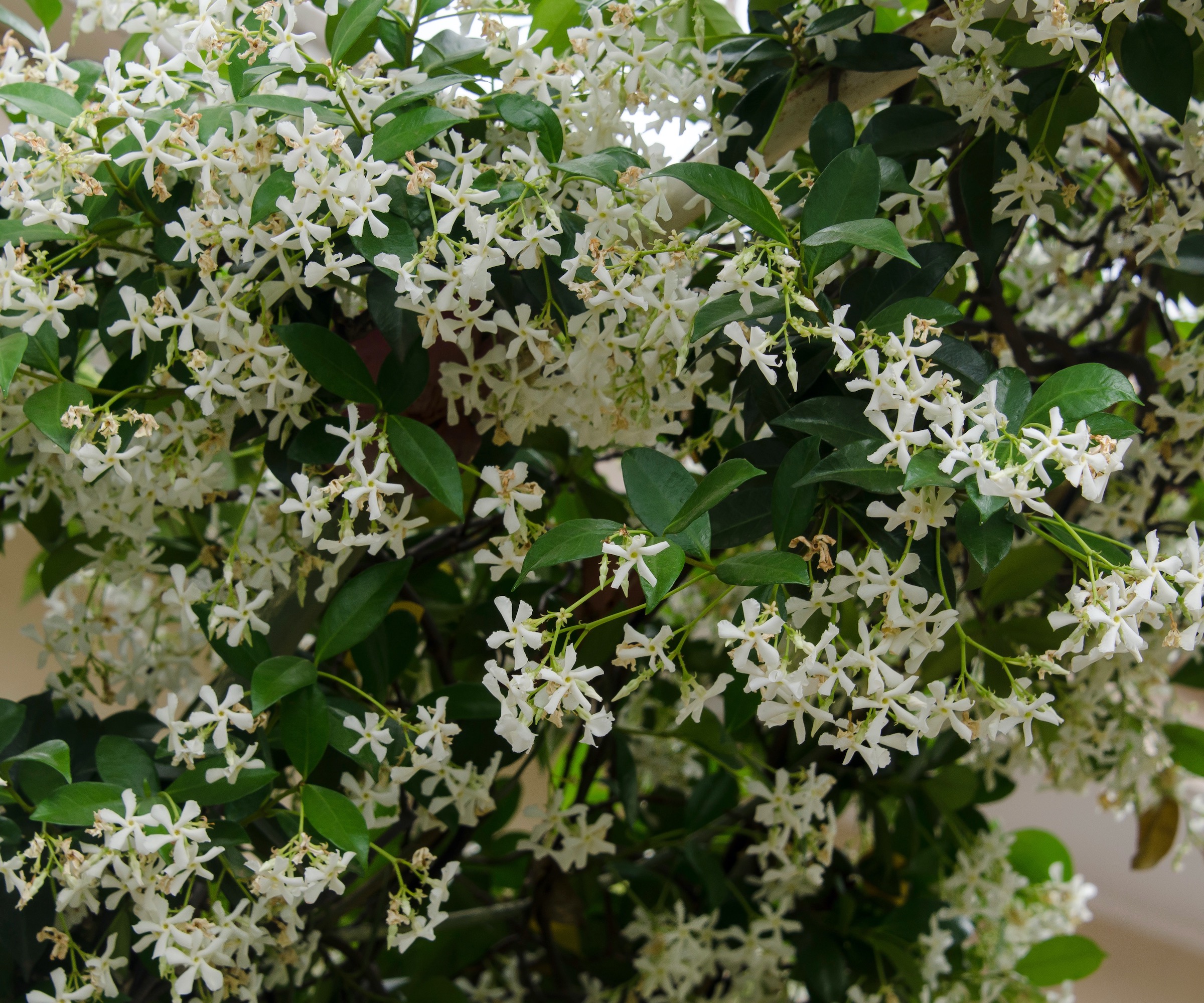
- Best for: Floral scent
- Height: 20-30ft
- Hardiness: USDA 8-10
Star jasmine is an impressive fast-growing flowering vine for incorporating into your front yard flower bed ideas as it will help to perfume the approach to your home.
Alternatively, you can learn how to grow star jasmine in pots to support your patio ideas, and the pretty flowers will bring a sweet scent to your patio.
Star jasmine live plants can be ordered via Amazon.
Despite their name, these fast-growing flowering vines are not actually part of the jasmine family.
Though they have very similar flowers and a sweet jasmine scent, it is actually an evergreen woody liana vine. Regardless, their growing requirements are very similar to how to grow jasmine, and the star jasmine thrives in sun or dappled shade.
13. Sausage vine
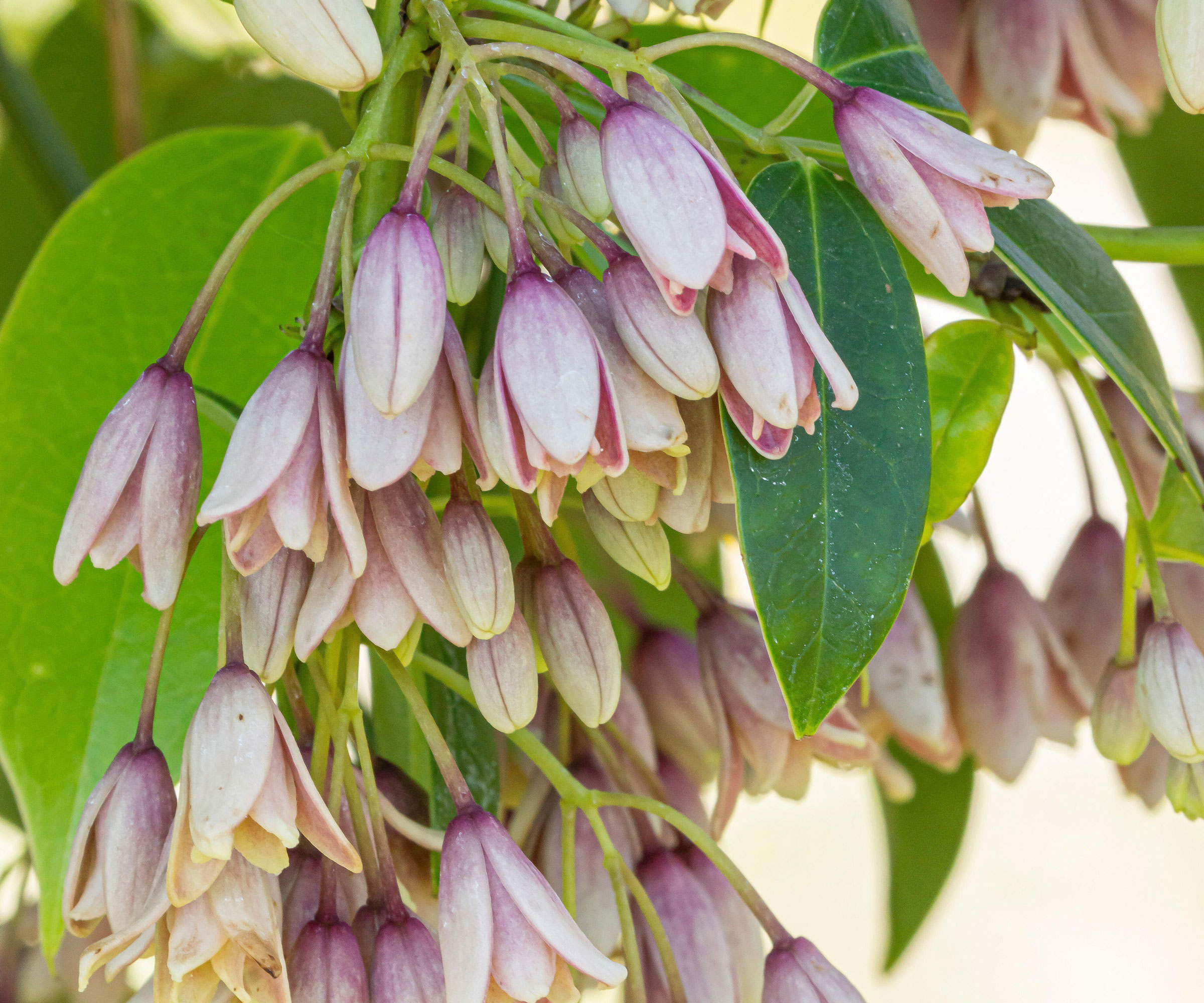
- Best for: Unusual blooms
- Height: 20ft
- Spread: 13ft
- Hardiness: USDA 9-10
From the name, the broad-leaved sausage vine might seem like an unusual addition to the garden. However, Holboellia latifolia is one of the best evergreen climbers and will add both color and texture to the garden.
Reaching a height of 20 feet, it hardy down to zone 9, so it is best suited to warmer climes and paired with other tropical garden ideas.
Come spring, they erupt in a profusion of pinky-yellow flowers which cascade from the towering vine.
Their stunning springtime display is sure to leave you wondering why it took you so long to introduce these beautiful, fast-growing flowering vines into your garden.
14. Golden hop
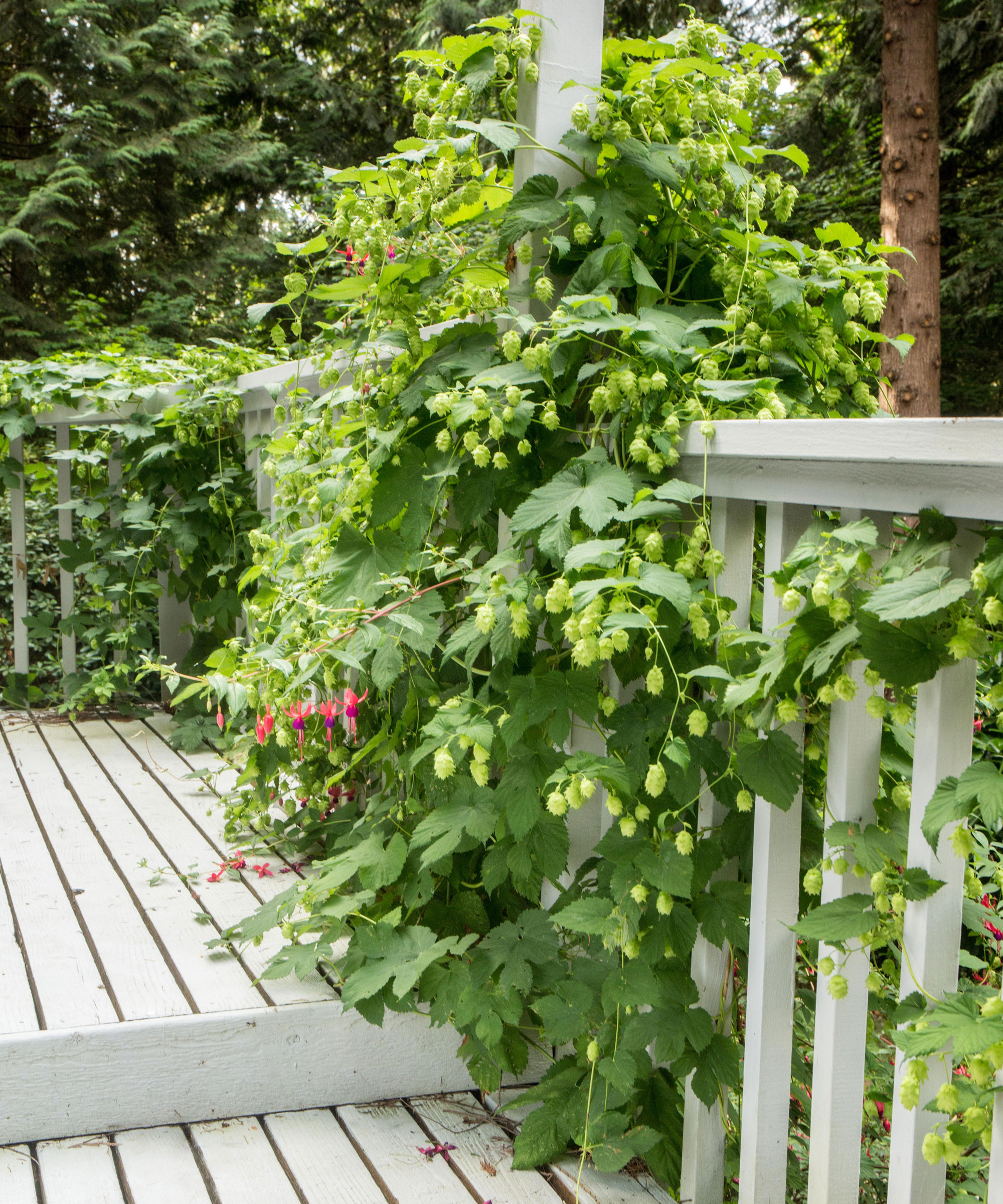
- Best for: Green flowers
- Height: 13ft
- Spread: 8ft
- Hardiness: USDA 4-8
Humulus lupulus, or the golden hop vine, has superb lime-yellow leaves that light up the garden.
In summer, it produces primrose-green cone flowers. Then, in fall, the leaves glow butterscotch, and the plant is hung with hops.
It’s popular with butterflies and moths, being a caterpillar food plant, so is ideal is you are looking to bolster your wildlife garden ideas this year.
Golden hop seeds are available via Amazon.
15. Wisteria
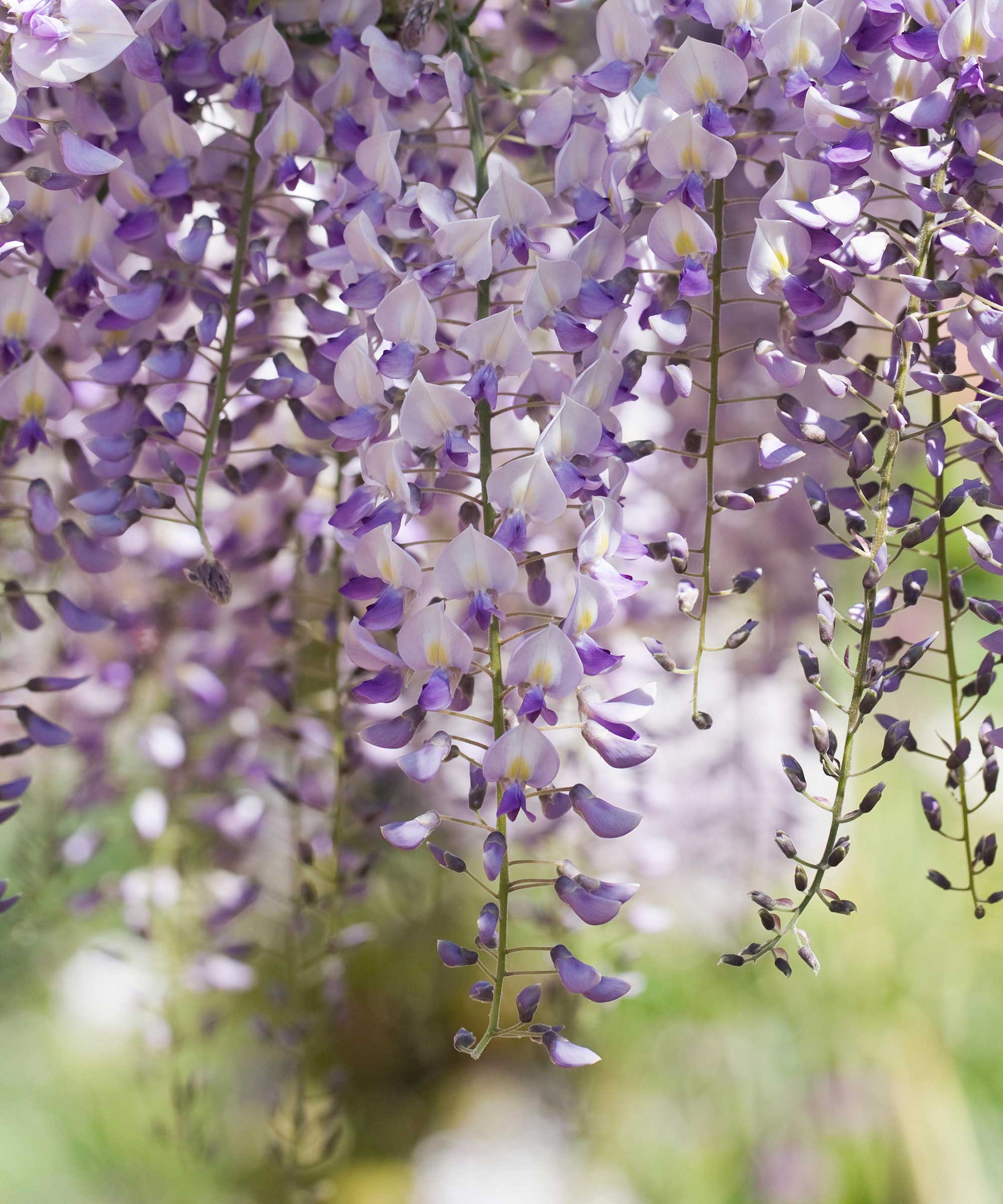
- Best for: Pendulous lilac blooms
- Height: 30ft
- Spread: 20ft
- Hardiness: USDA 4-9
Wisteria floribunda, or the Japanese wisteria, has elegant, long racemes of fragrant flowers in May and June.
Ideal for a sturdy pergola in sun, in moist, well-drained soil, this fast-growing vine will require pruning twice a year, once in summer and once in winter.
Remember to do your homework before adding this to your plot, as in some US states (such as South Carolina), this vine is classified as invasive.
Live 'Amethyst Falls' wisteria plants are available at Amazon.
FAQs
What is the quickest growing evergreen climber?
With varying levels of speed, ivies will provide leafy green coverage all year round. As self-clinging plants, they will grow over walls and fences and are great for disguising unsightly structures or chain link fences and are good for shady areas.
Once they take hold, however, they can prove to be thuggish and invasive plants and I wouldn’t recommend planting ivy in smaller gardens without a rigorous maintenance programme.
Variegated foliage types such as Hedera helix ‘Sulphur Heart’ or ‘Oro di Bogliasco’ have stunning decorative leaves. Golden English ivy live plants are available at Amazon.
These fast-growing climbing plants are the perfect choice for scrambling up a wall or fence to provide vertical color and privacy.
However, just as when choosing fast-growing ground cover plants or fast-growing shrubs, it's important to consider the eventual height and spread of your chosen plant to make sure it will suit your space.
Be prepared to prune and maintain your climber to ensure its growth doesn't get out of control.
Shop climbing plant accessories
These gardening gloves will keep your hands protected when planting and pruning fast-growing vines in your yard.







